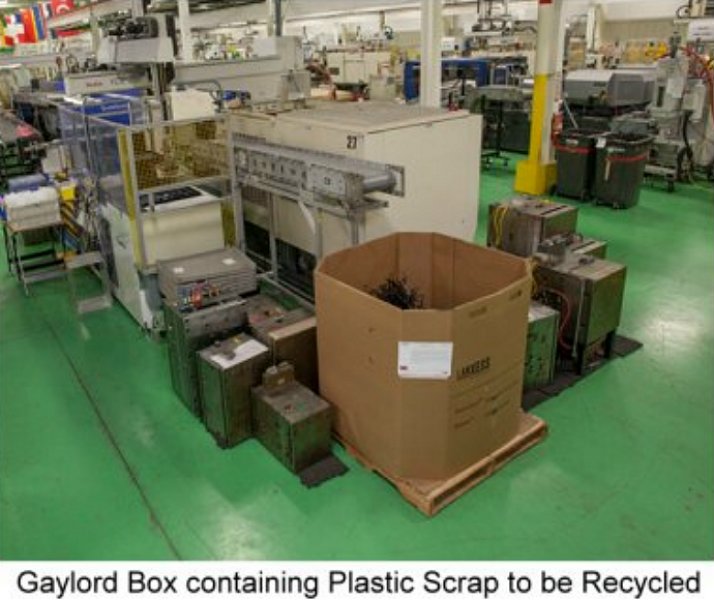Sustainability and Team 1 Plastics
Team 1 Plastics, a plastic injection molding company for the automotive industry, is focused on continuous improvement – improvement in its manufacturing processes, improvement in customer service, improvement in building its Team, and improvement as a Positive Community Member.
One of the ways to be a Positive Community Member is to protect the environment for future generations through sustainability processes. This summer, Team 1 Plastics enlisted the help of Intern Aaron Smit, a junior from Albion College, to review its current sustainability processes and to find ways that the company could improve. According to Smit, “My primary assignment this summer has been to evaluate the current plastic scrap recycling efforts of Team 1 and to propose/implement an alternative strategy.”
Smit identified things that Team 1 Plastics is currently doing in several categories:
- Energy: Team 1 has installed motion-censored lights and is exploring alternative power sources.
- Packaging: Team 1 utilizes reusable plastic containers as much as possible and is beginning to recycle corrugated cardboard.
- Waste: Team 1 recycles the majority of its plastic runner scrap (extra material produced in the injection molding process). In addition, the company is experiencing a general trend of waste disposal (as of January 2016).
Smit then identified a new recycling process for scrap plastic that Team 1 Plastics has implemented as a direct result of his work during the Internship.
Team 1’s former recycling process was to collect the scrap, generated during the production of parts, into Gaylord boxes (large heavy duty corrugated containers) placed at the injection molding machines. When a Gaylord was full, it was moved from the production floor to a semi-trailer for storage, and when the trailer was full (40 containers), Team 1 would send the collected scrap plastic to the recycler and receive a small rebate per pound.
Because Team 1 Plastics used a different Gaylord for each different type of plastic, when an injection molding machine began using a different resin, the Gaylord had to be moved away from that machine and a replacement Gaylord placed in its spot. In addition, a partially-filled Gaylord box sat on the production floor, taking up a lot of space while it waited to be moved to the next molding machine using that type of plastic. With this recycling process, there could be as many as 50 partially-filled Gaylord boxes sitting on the production floor.
With the new recycling process, Team 1 Plastics gathers scrap plastics with similar compositions into the same Gaylord box. Team 1 worked with the recycler to determine which plastics could be mixed together. Smit said, “We proposed 18 different mixes to the recycler and met with them to discuss what would be acceptable and what would not be acceptable. We learned that it depends on the plastic – some are separated by color and some are separated by filler. The recycler receives plastics from several sources, regrinds it, and sells it to other customers. Most of the plastics can be mixed because there are very small variations in the materials.”
With this new process, Smit said that Team 1 has reduced the number of Gaylord boxes on the production floor from 50 to around a dozen, “… greatly reducing the amount of floor space required and allowing Team 1 to use the space more efficiently … As a result of the saved space, new material transportation time within the building will decrease dramatically.”
What is next for Team 1 in its sustainability efforts? According to Smit, “Another change still in the works is using our own scrap by regrinding it and using it mixed with our virgin material. This process will greatly decrease the amount of generated waste.”
Is Team 1 Plastics committed to sustainability efforts? From his perspective, Smit thinks so. “I think the fact that Team 1 created an internship specifically for developing its sustainability efforts speaks to the company as a whole.”








Danielle Sheldon says:
Jeffery Carrel says:
Jeffery Carrel says: